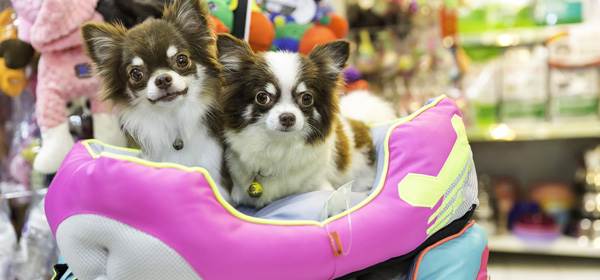‘The way we were’ is just how songstress Barbara Streisand would like to keep things with her beloved pet dog … so she had the animal cloned when she died.
The revelation was made during a wide-ranging interview Streisand gave to Variety in which she spoke of creating two replicas of her deceased Coton de Tulear, named Samantha, using cells from the hapless pooch’s mouth and stomach.
Samantha had been Streisand’s constant companion for 14 years and now her likeness will never be forgotten because the clones are identical copies.
So identical, that the singer had to tie coloured ribbons to their collars when her two stars were born so she could tell them apart. The pups are called Miss Scarlet (red ribbon) and Miss Violet (purple ribbon). A third Streisand pet, Miss Fanny, is a distant cousin of Samantha’s.
While cloning a dead pet, no matter how cherished in life, may seem creepy to some people, the practice is actually gaining in popularity, especially among wealthy American and Asian animal lovers.
ViaGen Pets, which owns the patent for the technology used to clone the original Dolly the Sheep, charges US$1600 to store a pet’s genetic material. Clients who go on to order clones need to fork out $50,000 for a dog and $25,000 for a cat.
The company, a self-proclaimed global leader in cloning animals, says its “simple procedure produces extraordinary results”. Here is how it works:
- the ViaGen technician replaces the nucleus of a donor egg with one of the founder’s frozen cells
- ViaGen’s proprietary treatment process joins this egg and cell together to produce an embryo
- a ViaGen embryologist then implants the embryo in a surrogate
- an identical genetic twin is delivered after a normal gestation period.
Private South Korean laboratory Sooam Biotech, whose founder is credited with having cloned the first dog in 2005, produces about 500 cloned embryos every day. However, they are mostly of livestock breeds, such as dairy cows. It is also involved in experiments to clone endangered and extinct animals.
Additionally, one of its current projects produces animal models to help research cures for diseases such as diabetes and Alzheimer’s.
On dog cloning, the company is very explicit, listing on its site the detailed procedures owners must follow to acquire a genetic sample from their pets.
Of its mission, it says: “Sooam not only performs dog cloning research, but we also heal the broken hearts.”
One thing cloning cannot reproduce, however, is a pet’s disposition. While the new pet appears like a carbon copy, as Streisand noted in her interview, “they have different personalities”.
Would you have your dead pet cloned? Is cloning pets ethical when there are so many abandoned animals in shelters?
Related articles:
Are you eating cloned meat?
Woolly mammoth cloned
Scientists grow human kidney

